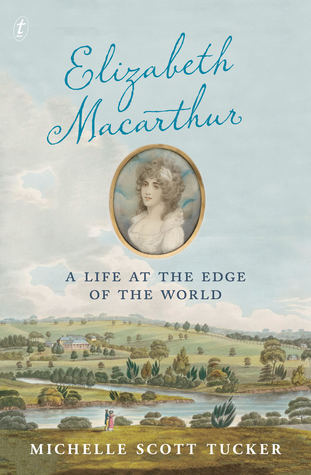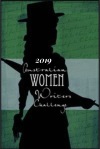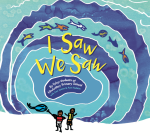As is my tradition, I have separated out my annual Reading highlights from my Blogging highlights, mainly because combining them would result in one very long post. I always do my Blogging Highlights on 1 January, which this year clashes with Monday Musings, unfortunately. All being well, I plan to do my usual first Monday Musings of the year tomorrow.
Top posts for 2023
Until recently the top of the ladder has been dominated by older posts, but in recent years there has been a gradual shift to more recent posts making it to the top. Last year, two posts published during the year made the Top Ten. This happened again this year. One (no. 6) is an obvious candidate, but the other (no. 2) is, as I wrote yesterday, a bit of a surprise.
Here is my 2023 Top Ten, in popularity order:
- Jack London, “War” (March 2010)
- Ambelin Kwaymullina, “Fifteen days on Mars” (from Unlimited futures)(January 2023) (Australian)
- Epiphany in Harrower’s “The fun of the fair” (essay by Emily Maguire) (January 2022) (Australian)
- Audrey Magee, The colony (September 2022)
- Ernest Hemingway, “Cat in the rain” (September 2022)
- Bonnie Garmus, Lessons in chemistry (June 2023)
- Barbara Baynton, “A dreamer” (January 2013) (Australian)
- Anthony Doerr, All the light we cannot see (September 2016)
- George Orwell, “How the poor die” (October 2010)
- Mark Twain, “A presidential candidate” (August 2016)
Observations:
- Four of these posts (London, Maguire’s essay on Harrower, Baynton and Twain) were Top Tens last year, with three being Serial Top Tenners (London, Baynton, and Twain). Do all – including the relative newbie, the essay on Harrower – relate to school/university assignments?
- Five posts were published in the last two years, which is a record. Some surprise me, but I suspect the popularity of my Garmus and Doerr posts is related to their screen adaptations released in 2023.
- Five of this year’s Top Tens are Top Ten debuts, including the Garmus and Doerr. The sudden appearance here of my rather old Orwell post might be due to a recent flurry of books about Orwell, including Anna Funder’s Wifedom, but then, why that one of all my Orwell posts? Maybe there’s another reason, maybe it’s been set as a text? I’m pleased to see Magee’s novel here, and guess it’s just because this novel has been popular, but what about my relatively new Ernest Hemingway post? Why that one?
- In 2021, six of the Top Ten posts were for full-length books, but as I wrote last year that was clearly an aberration, as in 2022 – and again this year – we returned to my more usual motley mix of mainly short stories/essays.
I also like to see how the posts written in the year fare, so here are the Top Ten 2023-published posts (excluding Monday Musings, event and meme posts):
- Ambelin Kwaymullina, “Fifteen days on Mars” (2nd, January, First Nations Australian)
- Bonnie Garmus, Lessons in chemistry (6th, June, American)
- Robbie Arnott, Limberlost (12th, February, Australian)
- Pauline Johnson, “A red girl’s reasoning” (19th, February, First Nations Canadian)
- ChatGPT and Craig Silvey’s Jasper Jones (44th, February, Australian)
- Zitkala-Sa, “The soft-hearted Sioux” (45th, March, First Nations American)
- D’Arcy McNickle, “Train time” (49th, April, First Nations American)
- Leslie Marmon Silko, “The man to send rain clouds” (53rd, June, First Nations American)
- Eleanor Limprecht, The coast (83rd, March, Australian)
- JD Vance, Hillbilly elegy (91st, August, American)
My skewed reading year shows up strongly in these stats. I am intrigued that there was so much interest in my posts on stories by First Nations North Americans, particularly given Australians represent by far the most numerous visitors to my blog.
My most popular Monday Musings posts were essentially the same as last year: Books banned in Australia (June 2019); Some new releases (the 2023 version); The lost child motif (February 2011).
Random blogging stats
The searches
I love sharing some of the search terms used to reach my blog, Unfortunately, search term visibility is no longer what it used to be, but a few still get through for some reason. Certain browsers?
Some are probably assignment or book group related?
- “david foster wallace word notes”
- “key characteristics of australian literature in terra nullius by coleman”
- “the colony audrey magee book club questions” and “the colony audrey magee what does title mean”
- “characters in ripper by shelley burr”
- “but being completely alone was a feeling”: searching this on my blog retrieves posts like Delia Owen’s Where crawdads sing and Tegan Bennett Daylight’s Six bedrooms, with Delia Owens being what they were looking for, as I quote this line, without the opening “but”.
Some are just general research:
- “famous first sentences from Australian novels”
Then others seem to be looking for something very specific:
- ‘date of birth and “scott tucker”‘ and ‘husband and “scott tucker”’: these are probably looking for this Scott Tucker but they got Michelle Scott Tucker’s Elizabeth Macarthur’s biography instead.
- “germaine greer care home” AND “germaine greer aged care”: we are still interested in Germaine Greer. Over the year I have had many hits from a site called mumsnet.com which linked to my 2022 Canberra Writers Festival post on her.
- “very short stories convict fiction free”: this seems to find my Convict Literature tag, so tags do work!
Other stats
Overall, 2023 was another challenging year for me blog-wise and it shows in the stats. I only wrote 135 posts, which is the fewest number of posts per year that I’ve ever written and is well under my long term average of 153. However, my overall hits for the year increased by 17% on last year. Stats! Always a mystery.
The top ten countries visiting my blog vary slightly from last year: Australia (44%), the USA (27%), Britain, India, Canada, the Philippines, China, France, New Zealand, and Germany, in this order. The first four are the same, and then five of the next six are the same countries, in different order. However, Mexico dropped out to be replaced by New Zealand.
Challenges, memes, et al
I only do one regular meme, Kate’s (booksaremyfavouriteandbest) #sixdegreesofseparation, and in 2023 I did every month, except December. I occasionally do other memes – found under my “memes” category link – but you’ll find no others in 2023.
I also took part, to various degrees, in Bill’s (The Australian Legend) AWW Gen 5 – SFF, Nonfiction November (multiple bloggers), Novellas in November (Cathy of 746 books and Rebecca of Bookish Beck), the #YEAR Club (Kaggsy’s Bookish Rambling and Simon’s Stuck in a Book), Brona’s Aus Reading Month, Buried in Print’s MARM, and the William Trevor Reading Year (Cathy of 746 Books and Kim of Reading Matters). Most of these can be found via my “Reading weeks/months/years” category.
I do these because they align with my reading practice and goals. I’d love to do more, and I like the structured encouragement they provide for me to explore writers and works I would otherwise find hard to fit into my schedule.
And so, 2024 …
As always, thank you to all of you who commented on my blog this year – the regulars who hang in with me year in year out, and the newbies who have given me a shot. I hope you have enjoyed the community here enough to stay. I love those of you who comment. Thanks so much for being an active part of the community. But, a big thank you too to the lurkers. I really do appreciate your interest and support too.
I also want to thank all the hardworking bloggers out there. I’ve been a poor community member – again – this year, but I do appreciate you and enjoy reading your posts when I can. I look forward to more reading and great book talk in 2024.
Finally, huge thanks to the authors, publishers and booksellers who make it all possible – and who have proved yet again that the book is far from dead.
Roll on 2024 … a big year for my blog which will turn 15 in May. Meanwhile, Happy New Year everyone.






















 Not included in the above list is Heidi Sze’s book Nurturing your new life, which I have not specifically reviewed. However, I have read a significant proportion of it, and did write up
Not included in the above list is Heidi Sze’s book Nurturing your new life, which I have not specifically reviewed. However, I have read a significant proportion of it, and did write up 
 Andrew Croome’s
Andrew Croome’s  Carmel Bird’s
Carmel Bird’s  Bernadette Brennan’s
Bernadette Brennan’s  Anton Chekhov’s
Anton Chekhov’s  As with translation above, I have aimed here to traverse the globe.
As with translation above, I have aimed here to traverse the globe. Jane Austen’s Emma (my posts,
Jane Austen’s Emma (my posts,  Joyce Carol Oates’
Joyce Carol Oates’  I think I can interpreted this to mean anything not my contemporary Australia, so I’ve chosen a wide variety of worlds, from the mythical past to dystopian futures.
I think I can interpreted this to mean anything not my contemporary Australia, so I’ve chosen a wide variety of worlds, from the mythical past to dystopian futures.
 FICTION
FICTION SHORT STORIES
SHORT STORIES CHILDREN’S PICTURE BOOKS
CHILDREN’S PICTURE BOOKS This year, fiction (including short stories) represented around 57% of my AWW challenge reading, which is similar to last year. I read no poetry or verse novels again this year, and I read fewer Classics than last. However, I did read three classic short stories by Capel Boake for
This year, fiction (including short stories) represented around 57% of my AWW challenge reading, which is similar to last year. I read no poetry or verse novels again this year, and I read fewer Classics than last. However, I did read three classic short stories by Capel Boake for 



